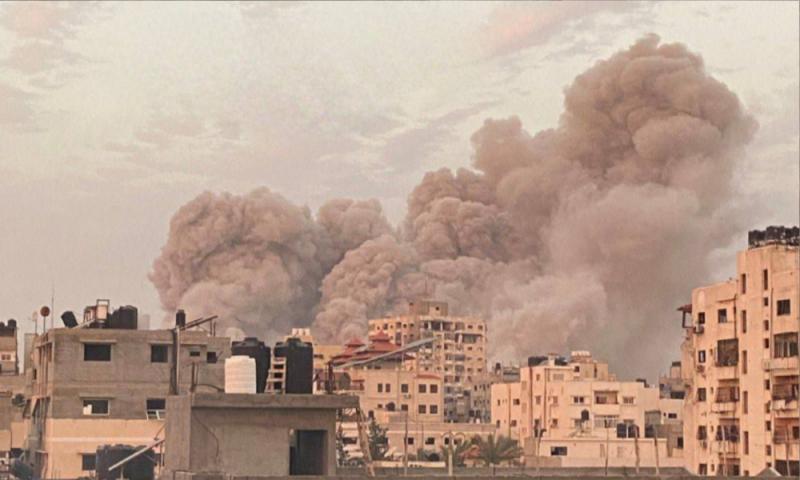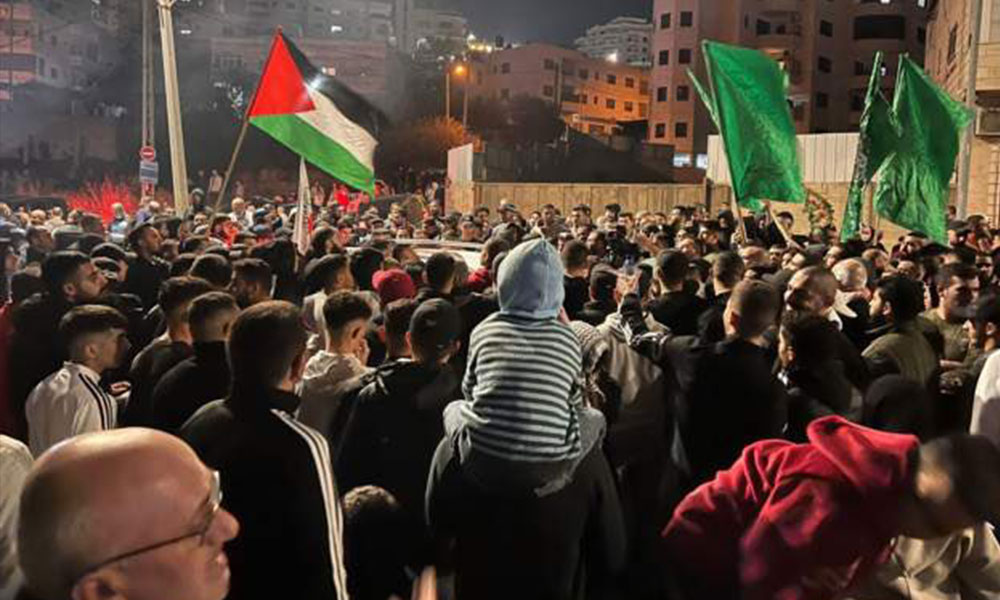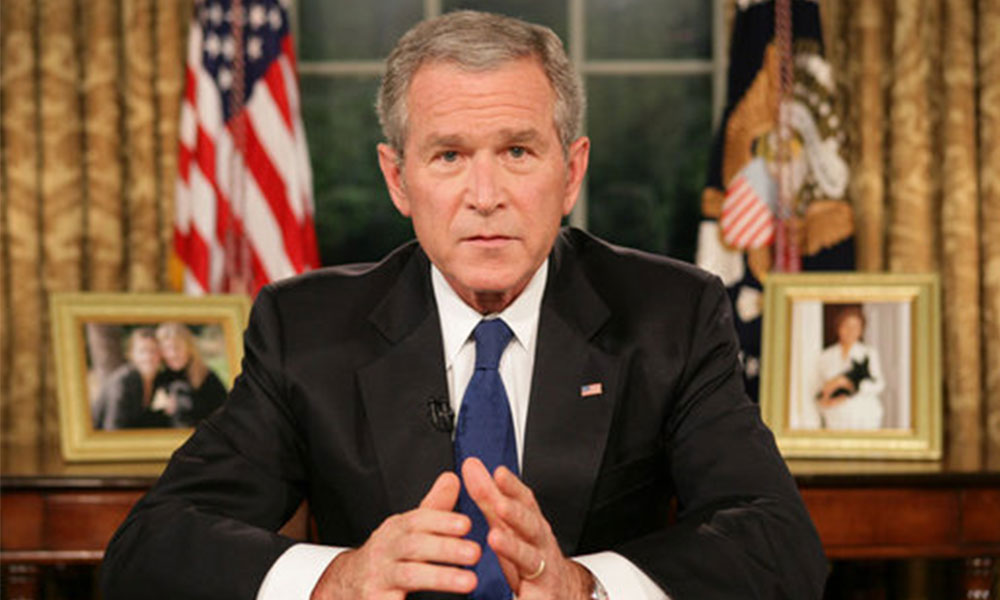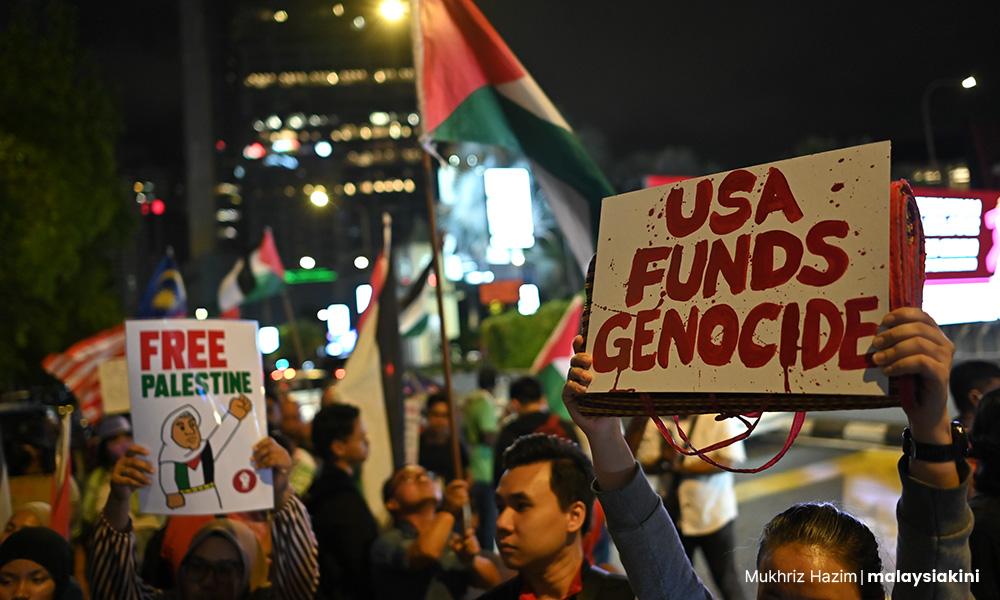
Eric Loo
Published: Aug 21, 2024 5:27 PM
COMMENT | According to Western media bias, Hamas, Hezbollah, and Houthis are militants. Israel is the victim. A Palestinian death is valued so much less than an Israeli. The Israel-Gaza war is a clash between the “civilized” Christian West and a “savage” Islamic world.
That’s the Western media narrative today. It stems from Hamas’ attack on southern Israel on Oct 7 last year. 1,200 Israelis were killed. 250 hostages were dragged off to Gaza. In retaliation, Israel bombed Gaza, killing over 40,000 Gazans, the majority women and children.
Reports by Palestine Chronicle, Al Arabiya, and Al Jazeera highlight the atrocities of Israel’s retribution. American mainstream media such as The New York Times, CNN, and Fox News lean towards Israel.
And, in Israel, Haaretz, Jerusalem Post, and Times of Israel differ in their depiction of Israel’s genocidal retaliations.
For alternative non-Western views, one has to research and scour social media platforms. Here, misinformation, propaganda, and AI-generated images are as abundant as speculations by self-proclaimed experts from the West and non-West.
This media noise reminds me of the Iraq War in 2002 when Western journalists were embedded with the US military.
Published: Aug 21, 2024 5:27 PM
COMMENT | According to Western media bias, Hamas, Hezbollah, and Houthis are militants. Israel is the victim. A Palestinian death is valued so much less than an Israeli. The Israel-Gaza war is a clash between the “civilized” Christian West and a “savage” Islamic world.
That’s the Western media narrative today. It stems from Hamas’ attack on southern Israel on Oct 7 last year. 1,200 Israelis were killed. 250 hostages were dragged off to Gaza. In retaliation, Israel bombed Gaza, killing over 40,000 Gazans, the majority women and children.
Reports by Palestine Chronicle, Al Arabiya, and Al Jazeera highlight the atrocities of Israel’s retribution. American mainstream media such as The New York Times, CNN, and Fox News lean towards Israel.
And, in Israel, Haaretz, Jerusalem Post, and Times of Israel differ in their depiction of Israel’s genocidal retaliations.
For alternative non-Western views, one has to research and scour social media platforms. Here, misinformation, propaganda, and AI-generated images are as abundant as speculations by self-proclaimed experts from the West and non-West.
This media noise reminds me of the Iraq War in 2002 when Western journalists were embedded with the US military.

Today, no Western reporters are embedded with families in Gaza or with Hamas and Hezbollah fighters because Israel has prevented foreign journalists from entering the Gaza Strip. The only option is to read the reports by Palestinian journalists who are already in Gaza despite the security risks.
Meanwhile, according to the Committee to Protect Journalists, since the Oct 7 event, 113 journalists and media workers have been confirmed killed in Gaza: 108 Palestinian, two Israeli, and three Lebanese.
US-aligned media coverage consistently projects the American pro-Israel position even as the United Nations has long advocated for a two-state solution as the only way to end the Israeli-Palestinian conflict.
Middle Eastern outlets like Al Jazeera and Al-Arabiya, which focus on the impact of Israel’s wanton bombings on Gaza, are considered to be antisemitic.
The polarised coverage is unsurprising given that reporting of wars tends to lean towards the government’s geopolitical interests, be it Israel’s strikes on Gaza or Ukraine’s incursion into Russian territory.
Journalists are generally cognisant of the humanitarian impact of wars. But they are prone to simplifying the nuances and complexities of global conflicts into readable stories.
Inherent bias
Like everyone else, journalists are influenced by their preconceptions, more so when conflicts are driven by history, religion, and race.
For instance, when protests in Bangladesh resulted in the police killing hundreds of students, which led to then-prime minister Sheikh Hasina fleeing the country, Indian media reportedly framed the student protests through an Islamophobic lens.
Journalists are also constrained by logistical challenges on the frontline. Even if second-hand resources are accessible online, they have few options but to rely on government sources for official information, much of it controlled to position the “civilized” democratic nations against “uncivilized” authoritarian states.
Historical precedents illustrate this trend. Recall president George W Bush’s post-9/11 assertion in invading Iraq: “You’re either with us or against us”.
Or the US-aligned media’s unquestioning report of general Colin Powell’s UN speech on Saddam Hussein’s stockpile of weapons of mass destruction despite the lack of evidence.

Former US president George W Bush
The Western media have historically framed the US model of democracy as the world’s only hope for peace. This ideology has gone unchallenged since the UN came into existence after the Second World War.
However, Chinese and Russian media are pushing back. They are advocating for a multipolar world to contain America’s claim to hegemony.
Online content is just as polarised as the media-consuming public. We interpret what is true and false from where we live, far removed from the actual atrocities on the ground.
Nuances that align with our worldviews are amplified. That which challenges our beliefs is downplayed. Fact-checking the basis of truth takes a backseat.
Self-research, ask questions
The fact is that media reporting of wars and conflicts can never be complete. Selective images and connotative language can subtly fan our hatred or sympathy for Israelis or Palestinians. And what journalists choose not to report can be as impactful on our perception as what is reported. That is the nature of reporting on the frontline.
Understanding the journalistic process and its limitations helps in seeking out a clearer path through the fog of war. The onus thus falls on readers to research widely for different perspectives to get a rough picture of what is believable while also recognising the biases that we bring to the stories.
Given the range of “expert” prognoses of the Israel-Gaza and Russia-Ukraine wars, which media outlets do we trust more? The key lies in examining the journalist’s choice of news sources, who they quote often, and who they emphasise.
Other questions to consider: What are the political and institutional affiliations of the experts quoted in the stories? Who is behind the information?
The Western media have historically framed the US model of democracy as the world’s only hope for peace. This ideology has gone unchallenged since the UN came into existence after the Second World War.
However, Chinese and Russian media are pushing back. They are advocating for a multipolar world to contain America’s claim to hegemony.
Online content is just as polarised as the media-consuming public. We interpret what is true and false from where we live, far removed from the actual atrocities on the ground.
Nuances that align with our worldviews are amplified. That which challenges our beliefs is downplayed. Fact-checking the basis of truth takes a backseat.
Self-research, ask questions
The fact is that media reporting of wars and conflicts can never be complete. Selective images and connotative language can subtly fan our hatred or sympathy for Israelis or Palestinians. And what journalists choose not to report can be as impactful on our perception as what is reported. That is the nature of reporting on the frontline.
Understanding the journalistic process and its limitations helps in seeking out a clearer path through the fog of war. The onus thus falls on readers to research widely for different perspectives to get a rough picture of what is believable while also recognising the biases that we bring to the stories.
Given the range of “expert” prognoses of the Israel-Gaza and Russia-Ukraine wars, which media outlets do we trust more? The key lies in examining the journalist’s choice of news sources, who they quote often, and who they emphasise.
Other questions to consider: What are the political and institutional affiliations of the experts quoted in the stories? Who is behind the information?

What is the evidence? What do other sources say? What visuals and footage are used repetitively? Which media outlets are they working for? What are the political leanings of the different outlets?
Look beyond the visuals and detect the loaded words that connote different meanings to different people. For instance, emotion-charged descriptors like “terrorists” versus “freedom fighters”, “occupiers” versus “defenders”, “invaders and liberators”, “genocide and ethnic cleansing”, “civilian deaths and collateral damage”, and so forth.
Finally, cross-check the stories with think tanks and research institutions such as FactCheck.org and the International Fact-Checking Network at Poynter Institute.
ERIC LOO is a former journalist and educator in Australia and a journalism trainer in parts of Asia.

No comments:
Post a Comment